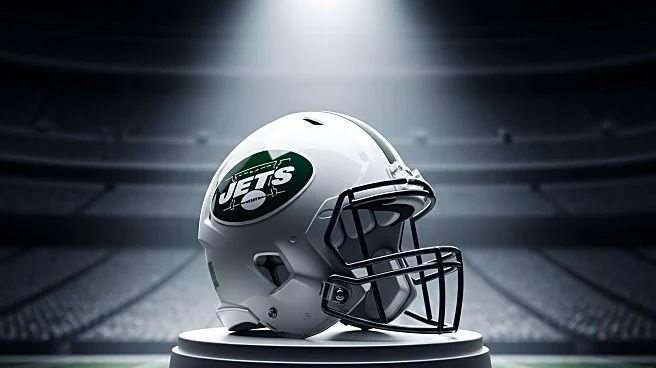What's Happening?
Despite ongoing trade rumors, the New York Jets have reportedly decided not to trade running back Breece Hall, even as the team faces a challenging season with a 0-4 record. Hall, who has been the subject of trade speculation since the draft, remains the Jets' primary running back, especially with Braelon Allen sidelined due to a knee injury. Hall is in the final year of his contract, and while he could generate interest from other teams, the Jets have not indicated any plans to trade him. The team may consider trading Hall before the November 4 deadline if their season does not improve, allowing them to receive assets in return.
Why It's Important?
The decision to retain Breece Hall is significant for the Jets as they navigate a difficult season. Hall's performance could be crucial in helping the team improve their standings or increase his trade value. With Allen injured, Hall's role becomes even more critical, as he is the only experienced running back on the roster. Trading Hall could provide the Jets with valuable assets and allow them to assess other players like Isaiah Davis. The team's decision reflects their strategic approach to managing player contracts and roster depth amid challenging circumstances.
What's Next?
The Jets will continue to monitor Hall's performance and the team's progress as they approach the trade deadline. If the team does not improve, they may reconsider trading Hall to acquire future assets. The Jets' management will need to evaluate their roster needs and potential trade offers, balancing immediate performance with long-term planning. The outcome of Hall's situation could influence the team's strategy for the remainder of the season and their approach to rebuilding for the future.
Beyond the Headlines
The Jets' handling of Breece Hall's situation highlights the complexities of managing player contracts and team dynamics in professional sports. The decision not to trade Hall, despite rumors, reflects the team's commitment to maintaining roster stability and exploring strategic options. This situation underscores the importance of player performance and contract management in shaping a team's competitive edge and long-term success.











